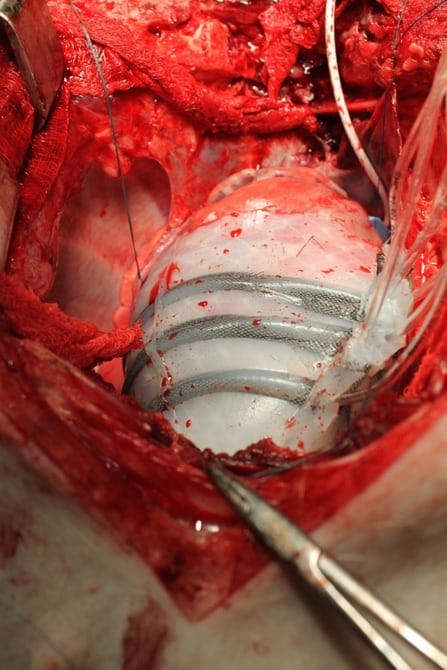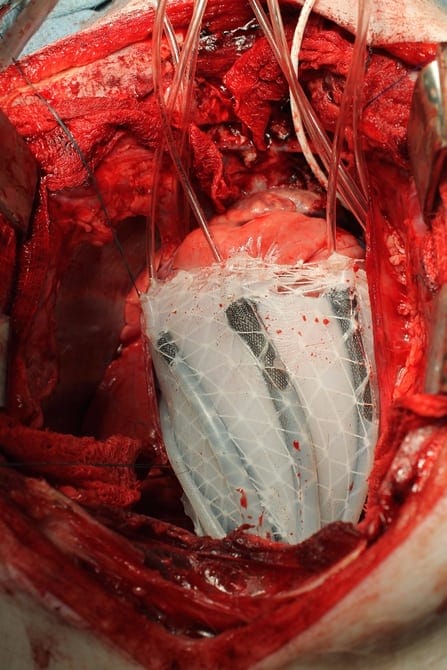Each year, over 41 million people suffer from heart failure. Despite all the advancements in medical sciences, the doctors were still unable to find a commercially viable and efficient solution; until now. Because recently, researchers from Harvard University and Boston Children’s Hospital have devised a soft robotic implant which aims to become the ultimate solution to heart failures!
During a cardiac failure, the ventricles of the heart stop twisting and pumping blood, which prevents the flow of the blood to other organs and results in almost immediate death. The latest device focuses on this issue, as it mimics the natural ventricular twist of the heart by using the soft robotic sleeve.

Ellen Roche is a biomedical engineer and Harvard doctoral candidate. Together, Roche and her team have created the silicon-based device. They claim that the design offers several advantages over many other ventricular devices (VADs), as it can twist and compress in sync with the beating heart. Thus, it can replicate the mechanics of the actual heart muscle, which is quite an incredible development in the pursuit of creating better cardiac devices.
The robotic sleeve is also better than the most contemporary ones as it uses air-powered soft pneumatic actuators, which do not get overheated and thus, are safer to be placed around the heart to act as the outer cardiac muscle layers.
The device was used on pig hearts, and the researchers were able to restore normal blood flow in six of these pigs that had an acute cardiac arrest. What makes the results of this study even more impressive is how the researchers were able to “fine tune” the device by picking and choosing to twist and compress either the right or left ventricle. This feature is an important one as, during a chronic heart failure, only a particular part of the organ is affected that needs to be rejuvenated.

Cardiothoracic surgeon Frank Pigula, who was involved in the study talked about the device,
“The cardiac field had turned away from idea of developing heart compression instead of blood-pumping VADs due to technological limitations, but now with advancements in soft robotics it’s time to turn back. Most people with heart failure do still have some function left; one day the robotic sleeve may help their heart work well enough that their quality of life can be restored.”
The device is still in the development stage and combines a suction device, a gel interface, and sutures while being tethered to an external pump.
“This work represents an exciting proof of concept result for this soft robot, demonstrating that it can safely interact with soft tissue and lead to improvements in cardiac function,” says co-author Conor Walsh, an associate professor of engineering and applied sciences at the Wyss Institute. “We envision many other future applications where such devices can deliver mechanotherapy both inside and outside of the body.”
The study was published in Science Translational Medicine.
We would like to know your thoughts on this breakthrough in medical devices. Comment below!


